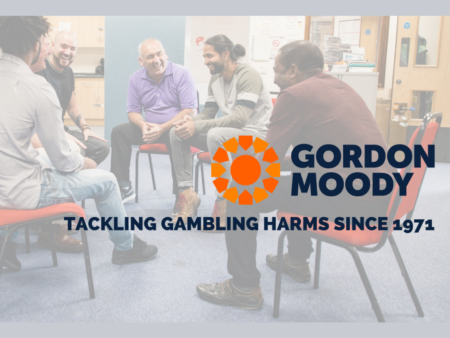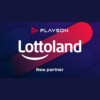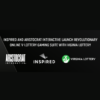The Dutch Online Gambling Association (NOGA) has issued a response to a recent study by the National Alcohol and Drugs Information System (LADIS), which shows a continuous rise in the number of people seeking treatment for gambling addiction.
Increase in Gambling Addiction Treatment
Newly released figures from LADIS highlight a significant increase in the number of individuals entering addiction care with gambling as the primary issue. The data reveals a sharp rise from 1,920 people in 2022 to 2,456 in 2023. This yearly increase of over 500 individuals seeking help for gambling addiction in the Netherlands has raised concerns within NOGA.
NOGA’s Concerns and Response
Eric Konings, Director of NOGA, commented on the findings, saying, “The figures published today show that after years of decline, there is now an increase in the number of gambling addicts in addiction care. Although the growth is mainly caused by the fact that more institutions have started to provide figures, this does give cause for concern. After all, gambling must be a safe and responsible form of entertainment for all Dutch people, and 2,456 people who have had to ask for help is 2,456 too many.”
Konings also urged for a cautious interpretation of the figures, stating, “As we stated last year, these figures should be interpreted with caution, because it often takes a considerable amount of time before people with problematic gambling behaviour turn to addiction care. Just as the downward trend of recent years was no reason to cheer, these figures are also no reason to panic.”
Continuous Efforts for Responsible Gambling
The Netherlands has been proactive in enhancing its responsible gambling regulations and initiatives since the market was regulated in October 2021. In April, NOGA called upon the Dutch Ministry to reevaluate its ban on gambling advertising, citing concerns that such measures might push players towards unregulated black market operators. More recently, the Dutch regulator Kansspelautoriteit (KSA) has emphasized the need for enhanced duty of care initiatives in the nation’s arcades.
Conclusion: The Addiction
The rising number of people seeking treatment for gambling addiction underscores the importance of continuous efforts to promote responsible gambling. NOGA remains committed to ensuring that gambling in the Netherlands is a safe and responsible form of entertainment. The organization calls for careful monitoring and proactive measures to address the challenges posed by gambling addiction, advocating for balanced policies that protect consumers while fostering a healthy gambling environment.
FAQs About the Rising Gambling Addiction Figures in the Netherlands
1. What are the recent findings regarding gambling addiction in the Netherlands?
Recent findings from the National Alcohol and Drugs Information System (LADIS) indicate a notable increase in the number of people seeking treatment for gambling addiction. The figures rose from 1,920 individuals in 2022 to 2,456 in 2023.
2. What is NOGA’s response to the rising gambling addiction numbers?
NOGA, the Dutch Online Gambling Association, has expressed concern over the increase in gambling addicts seeking treatment. They emphasize the importance of ensuring that gambling remains a safe and responsible form of entertainment for all Dutch citizens.
3. Why does NOGA caution against interpreting these figures too hastily?
NOGA advises caution in interpreting the figures, noting that there may be delays between the onset of problematic gambling behavior and seeking addiction care. They compare this caution to the lack of celebration during years of declining addiction figures, urging a balanced approach to understanding the data.
4. What steps has the Netherlands taken to address responsible gambling?
Since regulating its gambling market in October 2021, the Netherlands has implemented various measures to promote responsible gambling. These include calls for a reevaluation of gambling advertising bans and initiatives to enhance duty of care in arcades, as advocated by the Dutch regulator Kansspelautoriteit (KSA).
5. What is NOGA’s stance on gambling advertising bans?
NOGA has called for a reevaluation of gambling advertising bans by the Dutch Ministry, citing concerns that such restrictions may drive players toward unregulated black market operators.
6. How does NOGA view the overall situation regarding gambling addiction in the Netherlands?
NOGA acknowledges the increase in addiction care admissions but emphasizes the need for balanced perspectives. They advocate for continuous efforts to promote responsible gambling practices while addressing addiction concerns through informed policies and initiatives.
7. What is the role of the Dutch regulator, Kansspelautoriteit (KSA), in this context?
Kansspelautoriteit (KSA) has been actively involved in overseeing the implementation of responsible gambling measures in the Netherlands. Their recent emphasis on enhanced duty of care initiatives underscores their commitment to safeguarding consumers in the gambling sector.
8. How does NOGA plan to address the challenges posed by rising gambling addiction figures?
NOGA intends to collaborate with stakeholders to develop and implement effective strategies that promote responsible gambling. They stress the importance of education, awareness, and regulatory frameworks that prioritize consumer protection.
9. What does NOGA advocate for in terms of policy changes regarding gambling addiction?
NOGA advocates for evidence-based policy changes that strike a balance between consumer protection and maintaining a vibrant, regulated gambling market in the Netherlands.
10. How can individuals affected by gambling addiction seek help in the Netherlands?
Individuals affected by gambling addiction can seek help through addiction care services and support networks available in the Netherlands. NOGA encourages those in need to reach out for assistance promptly.


















